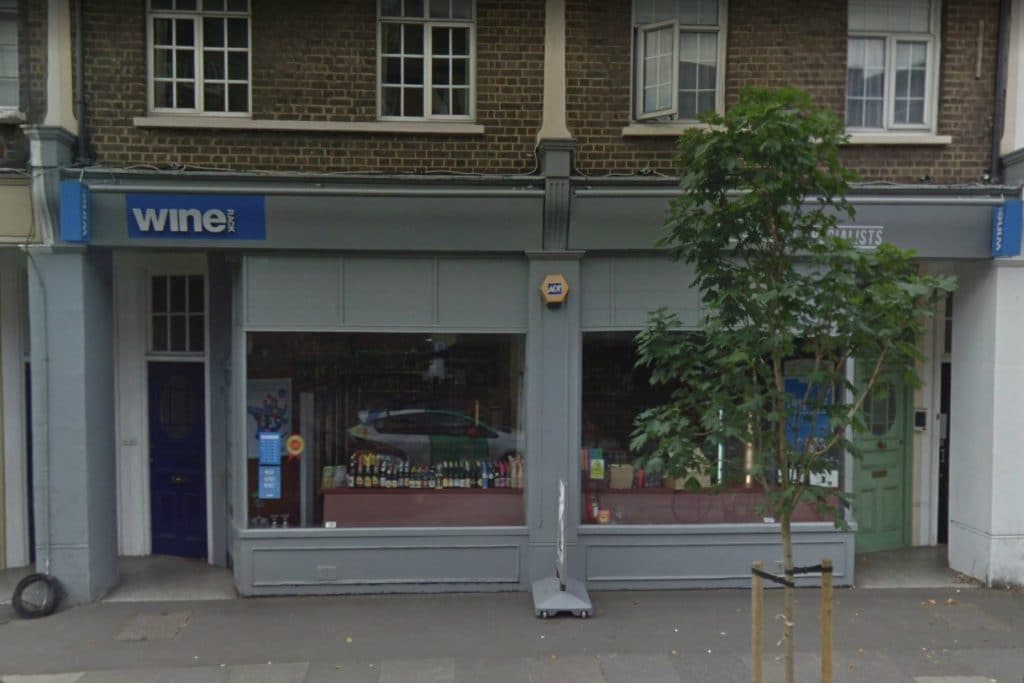In what is set to be remembered as one of the most unexpected, dramatic and rapid collapses in retail history, this one-time stock market darling officially appointed administrators at the start of this month.
The Retail Gazette takes a closer look at what was behind its break-neck downfall, and whether it could have been the same qualities responsible for its expeditious growth.
February 2013: Diane Hunter joins the small off-license chain Bargain Booze Limited as chief executive. Hunter had already built her reputation as an innovator during her eight-year career at Waitrose, where she pioneered “little Waitrose” and built its convenience store empire.
Her reputation as somewhat of a retail guru preceded her, but Hunter’s extensive knowledge of the retail landscape would later hinder her as she drove the company into increasingly supplier focused operations.
July 2013: Hunter changes the name of the company to Conviviality and floats the it on AIM.
Wasting no time in putting her stamp on the retailer and driving forward her plan for expansion, Hunter rebrands the group Conviviality.
Changing the company’s name just before taking it public set a tone of ballsy, quick and risky moves which would come to define the company in coming years.
It also sought to move the brand away from its discount down-market roots, aiming to raise the price of the stock market valuation and pave the way for more upmarket acquisitions down the road.
The subsequent IPO raised £64 million and valued the company at £67 million, providing Hunter the cash to fund her lofty ambitions.
September 2013: Conviviality purchases rival chain Wine Rack in a £1.6 million deal, marking the first of a whirlwind of acquisitions.
May 2014: The acquisitions begin to pick up in pace and size as Conviviality buys half of North East off license chain Rhythm & Booze in a deal worth £1.7 million.
“The 26 stores provide opportunities for us to extend our reach into Yorkshire, offering growth opportunities for the Company and our franchisees,” Hunter said.
February 2015: Conviviality pays £6 million for convenience store chain GT News, comprised of 37 stores, aiming to continue conversion into its own facias.
This was the last of the chain’s retail acquisitions, but Conviviality would ultimately suffer from the management teams it had collected along the way.
During this period Hunter was understood to have spent the majority of her time in her “second office” a Porsche with a printer in the boot produce takeover agreements on the move, speaking to the feverish nature of her expansion plans.
‘‘Such high levels of space addition would have provided a detrimental impact to Conviviality’s sales densities,” Globaldata’s Molly retail analyst Johnson-Jones
“Combining the margin erosion from inflation throughout the supply chain with declining sales densities is a recipe for disaster. Other food and grocery retailers (even the discounters to a lesser extent) have chosen to focus on improving sales densities in this inflationary environment rather than aggressively expanding.”
September 2015: The company makes its largest acquisition to date with the £200 million purchase of wholesaler Matthew Clarke, doubling its size and taking its annual sales to over £1 billion.
“I realised when I joined in 2013 – which feels like a lifetime ago – that the core competence of our business was wholesaling to our franchisees, who then sold on to consumers,” Hunter told The Telegraph last year.
“And while we did a really, really good job of it, why would you only serve one group of customers if you’re a wholesaler?”
This is where conviviality started to go wayward, ploughing into an industry it had little knowledge of and straying from its core offering, all with a management team which was not up to the task, as Hunter would later realise in dramatic fashion.
November 2015: Conviviality buys a 51 per cent stake in Peppermint, opening the door to festivals and pop-up bars across the country.
May 2016: A £60 million deal sees Conviviality acquire supplier Bibendum, adding 4000 pubs, restaurants and hotels to its roster, bringing its total network to 17,000 outlets and 600,000 customers including supermarkets, corner shops and fine dining restaurants like The Ivy.
Industry sources have since revealed that the group “massively overpaid” for Bibendum, exposing Hunter’s lack of knowledge in the sector.
At the time industry pundits saw its diversification away from retail as a smart move, as the sector started to face challenges, however Hunter remained confident her franchisee model remained effective and that her retail business was “in a good place”.
Liberty Wines managing director David Gleave told the Financial Times: “Conviviality came from a retail background, and maybe they strayed too far into a sector of the market they didn’t understand so well,”
“The biggest difference is cash flow. As a retailer, you get money in the till right away. As a wholesaler, you generally wait 60 days for payments. That can be hard to manage given that distributing wine generally operates on very thin (profit) margins.”
READ MORE:
December 2017: After achieving its market capitalisation peak of £747 million a month earlier, Conviviality took advantage of the recently collapsed supply giant Palmer & Harvey, buying 125 of its Central Convenience stores alongside numerous Post Offices and petrol stations for £25 million.
Though it had been riding high for the last year, the Christmas period began to expose cracks in both its operations and management.
GlobalData’s Johnson said: “Christmas 2017 saw exceptionally strong sales for alcohol, particularly discount premium alcohol sellers Aldi and Lidl, and Conviviality should have been able to tap into this.
“The fact that it was unable to shows that there was an issue with relevance to the consumer and product offering. The lack of focus on the core proposition, as the main objective became to extend customer reach rather than improve the offering, likely precipitated this decline.”
January 2018: It posts falling profits amid its interim results, sending its share prices falling 12 per cent.
The cracks began to widen at the start of the year. It announced a major boardroom reshuffle including the departure of its managing director Mark Aylwin.
Profits should have been soaring following the Christmas period, and the reshuffle is likely to have been a reaction to the red flags beginning to appear in its balance sheets. Doubts started to form about its leadership.
Its latest results showed that it made just £528,000 profit on £836 million of sales in its half year results, figures that would come back to bite it when it needed investment most.
Langton Capital’s chief executive Mark Brumby told The Guardian Conviviality’s “cashflow management certainly wasn’t good enough or they wouldn’t have gone bust. This was a £1bn company a few months ago and now it’s worth nothing.”
March 8 2018: The first major blow was dealt to the group after it announced profits for the year could come 20 per cent below previous estimates.
This would later prove to be fatal, having blamed the wildly unexpected announcement on an accounting error.
Conviviality’s managerial ineptitude was laid bare to investors, sending share prices plummeting from 301p per share to 123p per share in less than 24 hours. This wiped £300 million of the company’s value, a drop from which it would never recover.
GlobalData’s Johnson added: “If the business had seen the severe margin erosion which had occurred, rather than the inflated EBITDA number which was reported due to error, then moves could have been made to cut costs and storm-proof the business.”
March 14 2018: As if a huge accounting error was not enough to decimate any confidence in the company’s management, it revealed a previously undisclosed £30 million tax bill.
Having “forgotten” to include this tax bill, due by the end of the month in its financial statements, its already rock bottom shares were frozen on AIM. It also scrapped its £8 million dividend, adding that it could struggle to meet its banking covenants.
Alarm bells were now well and truly ringing, but hope remained that the previously hugely profitable company could be salvaged from the crisis.
March 16 2018: PwC is appointed to undertake a review of the business, while announcing “constructive” negotiations with lenders to find the funds to meet its looming tax bill.
It painted a fairly rosy picture of its situation, seeking to “express its gratitude to all its stakeholders for their on-going support during this difficult period for the company.”
Though its problems were growing more severe by the minute, Conviviality underestimated the severity of the lack of confidence in its leadership, which would ultimately deter any buyers from considering a purchase for the company in its current form.
March 19 2018: Diane Hunter steps down. Once considered a prodigy within the industry, Hunter saw the mountain she would have to climb to come back from such glaring mistakes.
Perhaps more relevantly, she was replaced by chairman David Adams. Since Conviviality’s collapse Adam’s has become known for his unprecedented track record, acting on the board of Jessops, JJB Sports and HMV, all of which went bust.
March 25 2018: After revealing yet another profit warning, Conviviality announces that it requires £125 million in emergency funding in order to prevent falling into administration.
Its broker announced it was preparing a placing and potential open offer, stating it was the “most appropriate mechanism to recapitalise the business”, adding that a failure to secure funding through this mechanism would likely result in administration.
March 29 2018: Conviviality announced that it has failed to secure funding and looked to appoint administrators within the coming weeks.
The blatant issues within its management team drove potential rescuers well clear of making any investments.
Notably Crystal Amber founder Richard Bernstein reportedly mulled a takeover of the business at a reduced price.
However, he told the Financial Times it was “not investible because there was no evidence of a credible investable management team”, highlighting David Adams and his team’s unwillingness to “to take responsibility for what had gone wrong.”
Click here to sign up to Retail Gazette‘s free daily email newsletter


















